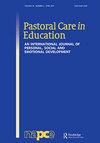Exploring secondary school pupils’ views regarding the skills and outcomes they gain whilst undertaking the Emotional Literacy Support Assistant (ELSA) intervention
IF 0.9
Q3 EDUCATION & EDUCATIONAL RESEARCH
引用次数: 0
Abstract
The Emotional Literacy Support Assistant (ELSA) intervention aims to build capacity within schools to support emotional wellbeing needs. Within the current evidence base, there appears to be an under-representation of student voice. This study adopted an in-depth survey design using pre, during and post intervention semi-structured interviews, to explore seven secondary school pupils’ views of the outcomes they felt they had gained from participating in ELSA. Deductive and inductive analysis produced key themes of developing skills to communicate self to and understand others; emotional understanding, management, and outcomes; relational and social skills and developing skills which support a feeling of positivity in school, as well as the application of key skills gained through the ELSA intervention. Pupils’ experiences of ELSA support were also shared, acknowledging strengths and possible areas for development. Implications for practice highlighted within the research include organisational considerations within a secondary school; as well as further consolidation of key skills post intervention to support pupils reaching maintenance of a given skillset.探讨中学生在接受情感素养支持助理(ELSA)干预时对技能和结果的看法
情感素养支持助理(ELSA)干预旨在建立学校内部支持情感健康需求的能力。在目前的证据基础上,似乎没有充分代表学生的声音。本研究采用深度调查设计,采用干预前、干预中、干预后半结构化访谈,探讨七名中学生对参与ELSA所获得的成果的看法。演绎和归纳分析产生了发展自我沟通和理解他人技能的关键主题;情绪的理解、管理和结果;关系和社交技能,以及在学校中支持积极情绪的发展技能,以及通过ELSA干预获得的关键技能的应用。学生们也分享了在ELSA支持下的经验,承认了优势和可能的发展领域。研究中强调的实践含义包括中学内部的组织考虑;以及在干预后进一步巩固关键技能,以支持学生达到维持特定技能。
本文章由计算机程序翻译,如有差异,请以英文原文为准。
求助全文
约1分钟内获得全文
求助全文

 求助内容:
求助内容: 应助结果提醒方式:
应助结果提醒方式:


